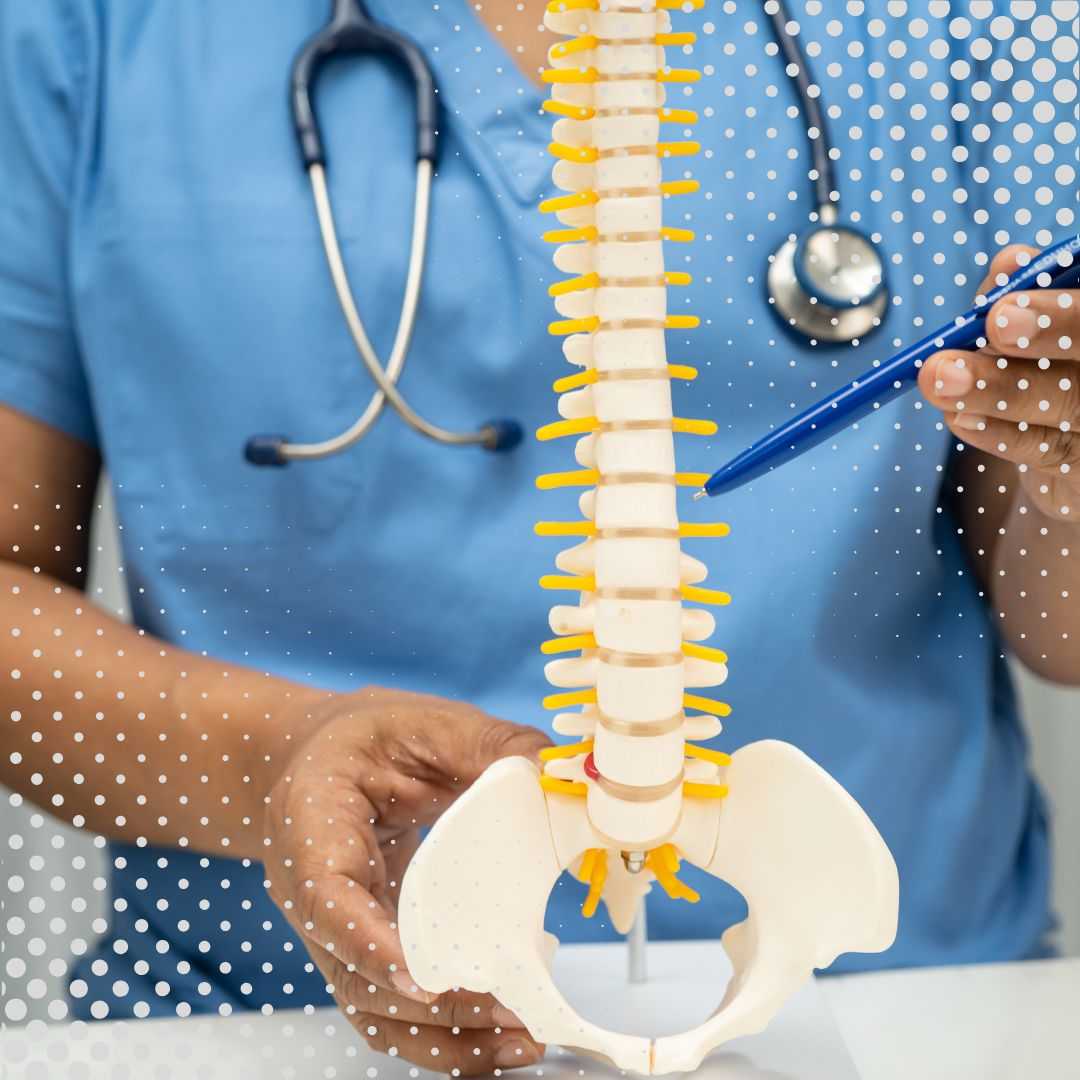
Unlock Your Health Potential: Comprehensive Diagnostic Check-ups Abroad
In our fast-paced world, prioritizing your health can often take a backseat. However, a proactive approach to wellness, especially through a complex diagnostic check-up, can be life-changing. Imagine gaining a complete, in-depth understanding of your body's current state, identifying potential health risks before they become serious problems, and receiving personalized guidance for a healthier future. This is precisely what a comprehensive diagnostic check-up offers.
Often referred to as a "full body check-up," "executive health assessment," or "preventative health screening," this procedure goes far beyond a routine doctor's visit. It involves a sophisticated battery of medical tests, imaging, and specialist consultations designed to scrutinize every major organ system. For many, the idea of undergoing such a detailed examination can feel daunting, but it's an invaluable investment in your long-term well-being and peace of mind.
People often seek a complex diagnostic check-up for various reasons. Perhaps you've noticed persistent fatigue, unexplained aches, or subtle changes in your body that concern you. Maybe there's a family history of certain conditions, prompting a desire for early detection. Or, you might simply be a proactive individual committed to optimal health, wanting to establish a baseline and receive tailored advice. Whatever your motivation, these advanced screenings are a cornerstone of modern preventative medicine.
Increasingly, individuals are turning to medical tourism for these comprehensive assessments. Countries around the globe offer state-of-the-art facilities, highly skilled medical professionals, and competitive pricing, making an overseas health check-up an attractive option. This guide will explore everything you need to know about complex diagnostics and check-ups, from why they're crucial to how you can safely and effectively pursue them abroad.
What symptoms indicate you might need a complex diagnostic check-up?
A complex diagnostic check-up isn't just for those with alarming symptoms; it's often a proactive step. However, certain persistent, vague, or unusual symptoms can be strong indicators that a more thorough investigation is warranted. These aren't necessarily signs of a severe illness, but rather signals that your body might be operating suboptimally or that underlying issues could be developing.
- Persistent Unexplained Fatigue: Feeling constantly tired, even after adequate rest, which isn't linked to exertion or poor sleep quality. This can be a symptom of various conditions, from thyroid issues to chronic infections.
- Chronic or Vague Pain: Ongoing headaches, joint pain, muscle aches, or abdominal discomfort that doesn't have an obvious cause or resolve with home remedies.
- Digestive Issues: Persistent bloating, indigestion, changes in bowel habits, or stomach pain that lingers.
- Unexplained Weight Changes: Significant weight loss or gain without changes in diet or exercise.
- Frequent Illnesses: A weakened immune system leading to recurrent colds, infections, or slow recovery.
- Changes in Skin, Hair, or Nails: Unusual rashes, hair loss, or brittle nails can sometimes point to nutritional deficiencies or hormonal imbalances.
- Memory or Concentration Problems: Noticeable decline in cognitive function, often described as "brain fog."
- General Feeling of "Not Right": Sometimes, it's just an intuitive sense that something is off with your health, even without specific, definable symptoms.
- Anxiety about Health: If you find yourself constantly worrying about potential health problems, a comprehensive check-up can offer peace of mind or identify issues.
These symptoms, when persistent, suggest it's time to delve deeper than a standard check-up. A comprehensive assessment can help connect the dots and uncover the root cause.
What are the common causes and risk factors for needing advanced health screenings?
Beyond symptoms, certain lifestyle choices, genetic predispositions, and environmental factors significantly increase the rationale for regular, advanced health screenings. Understanding these risk factors can empower you to take proactive steps towards your health.
- Aging: As we age, the risk of developing various chronic conditions like heart disease, diabetes, certain cancers, and degenerative disorders increases. Regular screenings become more critical for early detection.
- Family History of Disease: If close relatives (parents, siblings) have had conditions like heart disease, cancer, diabetes, or autoimmune disorders, your risk is elevated. Genetic predispositions make early screening and monitoring crucial.
- Unhealthy Lifestyle:
- Poor Diet: High intake of processed foods, sugars, and unhealthy fats contributes to obesity, diabetes, and cardiovascular issues.
- Lack of Physical Activity: Sedentary lifestyles increase risks for heart disease, obesity, and certain cancers.
- Smoking and Alcohol Consumption: These are major risk factors for numerous cancers, lung disease, liver damage, and cardiovascular problems.
- Chronic Stress: Prolonged stress can negatively impact nearly every system in the body, contributing to hypertension, digestive issues, weakened immunity, and mental health disorders.
- Environmental Exposure: Exposure to pollutants, toxins, or specific occupational hazards can increase the risk of certain diseases.
- Previous Medical Conditions: Individuals with a history of specific illnesses (e.g., pre-diabetes, high blood pressure, previous cancer) require more vigilant monitoring.
- Overweight or Obesity: A significant risk factor for diabetes, heart disease, stroke, and several types of cancer.
These factors often work in combination, making a comprehensive overview of your health status invaluable for personalized risk assessment and preventative strategies.
What types of complex diagnostic tests are included in a full check-up?
The beauty of a complex diagnostic check-up lies in its holistic approach, combining various medical disciplines to paint a complete picture of your health. While specific packages vary, a typical comprehensive assessment will include:
- Extensive Blood & Urine Tests:
- Complete Blood Count (CBC)
- Lipid Panel (cholesterol, triglycerides)
- Blood Sugar (glucose, HbA1c for diabetes risk)
- Liver and Kidney Function Tests
- Thyroid Function Tests
- Inflammatory Markers (e.g., CRP)
- Vitamin Levels (e.g., Vitamin D, B12)
- Tumor Markers (e.g., PSA for men, CA-125 for women - used cautiously as screening tools)
- Electrolytes and Mineral levels
- Urinalysis for kidney function, diabetes, and infections.
- Advanced Imaging Studies:
- MRI (Magnetic Resonance Imaging): Often used for brain, spine, and joint assessment, or for specific organ screening.
- CT Scan (Computed Tomography): Can be used for chest, abdomen, or pelvis to look for abnormalities, though sometimes used judiciously due to radiation exposure.
- Ultrasound: Non-invasive imaging for organs like the thyroid, abdomen (liver, gallbladder, pancreas, kidneys), and pelvic organs.
- Mammography (for women): Essential breast cancer screening.
- DEXA Scan: Bone density measurement, especially for osteoporosis risk.
- Cardiovascular Screening:
- ECG/EKG (Electrocardiogram): Measures electrical activity of the heart.
- Stress Test (Treadmill Test): Assesses heart function under exertion.
- Echocardiogram: Ultrasound of the heart to evaluate its structure and function.
- Carotid Doppler Ultrasound: Checks for plaque buildup in the neck arteries, indicating stroke risk.
- Gastrointestinal Screening:
- Endoscopy/Colonoscopy: For detecting issues in the upper GI tract or colon, especially for those over a certain age or with specific risk factors.
- Pulmonary Function Tests (PFTs): Measures lung capacity and function.
- Specialist Consultations: Initial consultation with a general physician, followed by referrals to cardiologists, neurologists, gastroenterologists, or other specialists based on findings.
- Lifestyle and Nutritional Assessment: Often includes detailed discussions about diet, exercise, stress management, and sleep.
These tests are carefully selected to provide a comprehensive health overview, allowing for early detection and personalized health planning.
Who is eligible for a comprehensive health assessment, and when should you get one?
A comprehensive health assessment is not exclusive to a particular demographic; rather, it’s beneficial for a broad range of individuals committed to their health. Eligibility is less about a strict medical condition and more about a desire for proactive health management.
Who it's for:
- Proactive Individuals: Anyone wishing to establish a baseline of their health, understand their risks, and receive personalized wellness advice.
- Individuals Over 35-40: The risk of developing many chronic diseases begins to increase around this age, making regular comprehensive screenings more critical.
- Those with Family History: If you have a close family history of heart disease, cancer, diabetes, or other chronic conditions, these check-ups can aid in early detection and risk mitigation.
- People with Vague Symptoms: If you’re experiencing persistent, non-specific symptoms like fatigue, pain, or digestive issues that haven't been resolved by routine check-ups.
- Individuals with High-Stress Lifestyles: Executives, business owners, or anyone under significant professional or personal stress can benefit from understanding how it impacts their physical health.
- Before Major Life Changes: Such as planning a pregnancy, making significant lifestyle changes, or embarking on long-term travel.
When to get one:
- Annually or Biennially: For most healthy adults over 40, an annual or biennial comprehensive check-up is a good standard.
- Every 2-3 Years: For younger adults (mid-30s), a check-up every few years can be sufficient unless specific risk factors are present.
- Upon New or Worsening Symptoms: If you develop new, concerning symptoms or existing ones worsen, regardless of when your last check-up was.
- As Part of a Wellness Plan: If you are actively engaged in a wellness program and want objective data to track your progress.
Ultimately, the timing should be a discussion with your healthcare provider, taking into account your age, medical history, family history, and lifestyle.
What is the recovery time and what can I expect after a complex check-up?
One of the major advantages of a complex diagnostic check-up is that it’s almost entirely non-invasive (with the exception of some procedures like endoscopy, which might require light sedation and a short recovery). Therefore, there is typically no "recovery time" in the traditional sense.
During and Immediately After the Check-up:
- Most tests are quick and painless, such as blood draws, ultrasounds, and ECGs.
- Imaging scans (MRI, CT) require you to lie still for a period, but are generally comfortable.
- If an endoscopy or colonoscopy is included, you'll likely receive mild sedation and will need a few hours for the effects to wear off, meaning you shouldn't drive immediately afterward.
- You can usually resume your normal activities immediately after completing the diagnostic tests.
What to Expect Post-Check-up:
- Results Review: Most clinics will schedule a follow-up consultation, either in person or virtually, to review all your results in detail with a physician. This usually happens a few days to a week after all tests are completed.
- Personalized Health Report: You will receive a comprehensive report summarizing all findings, explanations of any abnormalities, and personalized recommendations.
- Lifestyle Recommendations: Based on your health profile, you might receive advice on diet, exercise, stress management, sleep hygiene, and specific preventative measures.
- Follow-up or Further Investigation: If any significant abnormalities are detected, the doctor will recommend further diagnostic tests or specialist consultations to investigate these findings. This could mean a referral to a cardiologist, oncologist, gastroenterologist, etc.
- Peace of Mind: For many, the greatest outcome is the reassurance that their health is in good standing, allowing them to continue their life with renewed confidence.
It's crucial to understand that a check-up is the beginning, not the end, of your health journey. The real value comes from understanding and acting on the information provided.
Are there any risks or side effects associated with comprehensive diagnostic procedures?
Comprehensive diagnostic procedures are generally very safe, especially when conducted in reputable medical facilities. However, like any medical intervention, there are minor risks and potential side effects that patients should be aware of:
- Discomfort from Blood Draws: Minor pain, bruising, or lightheadedness at the needle insertion site are common but temporary.
- Radiation Exposure from Imaging:
- CT Scans: Involve ionizing radiation. While the dose from a single scan is usually low, repeated scans over time can contribute to a very slightly increased lifetime risk of cancer. Doctors weigh this risk against the diagnostic benefits. Many comprehensive check-ups will prioritize MRI/Ultrasound, which do not use radiation, but CT may be included for specific indications.
- X-rays and Mammograms: Also use radiation, but doses are generally low and benefits for screening outweigh risks.
MRI and Ultrasound do not use ionizing radiation and are considered very safe.
- Sedation Risks (for Endoscopy/Colonoscopy): If these procedures are included, light sedation may be used, which carries very small risks like allergic reactions, breathing difficulties, or nausea. These are closely monitored by medical staff.
- False Positives/False Negatives:
- False Positives: A test may indicate an abnormality when none exists, leading to anxiety and potentially further unnecessary, invasive tests.
- False Negatives: A test may miss an existing condition, providing false reassurance. No test is 100% accurate, which is why a combination of tests and clinical judgment is vital.
- Anxiety and Over-diagnosis: Discovering minor, non-life-threatening anomalies can cause significant anxiety. Sometimes, minor findings (incidentalomas) that would never cause harm might be found, leading to follow-up and monitoring that could be seen as over-diagnosis.
- Allergic Reactions: To contrast dyes used in some imaging (like CT or MRI with contrast), though this is rare and usually managed.
It's important to discuss any concerns with your doctor and ensure that all tests included in your check-up are clinically justified and beneficial for your specific risk profile.
How much does a complex diagnostic check-up cost worldwide?
The cost of a comprehensive diagnostic check-up can vary dramatically depending on the country, the clinic's reputation, the range of tests included in the package, and the level of luxury or personalized service provided. Medical tourism destinations often present significant cost savings without compromising on quality.
Cost Comparison for Complex Diagnostic Check-ups (Estimated Ranges)
| Country | Estimated Cost Range (USD) | Notes on Value |
|---|---|---|
| United States | $5,000 - $15,000+ | Highest costs, often piecemeal billing, though state-of-the-art technology. |
| United Kingdom | $2,000 - $8,000 | Private clinics offer comprehensive packages; NHS mostly for urgent care. |
| Germany | $3,000 - $10,000 | Known for high-quality, precise diagnostics and excellent medical expertise. |
| Turkey | $1,500 - $4,000 | Very competitive pricing, modern hospitals, often including luxury amenities. |
| Thailand | $1,000 - $3,500 | Excellent patient hospitality, JCI-accredited hospitals, popular for wellness tourism. |
| India | $800 - $2,500 | Highly affordable, advanced medical tech, English-speaking staff. |
| Mexico | $1,000 - $3,000 | Convenient for North Americans, good quality facilities, proximity. |
| South Korea | $2,000 - $5,000 | Cutting-edge technology, highly efficient services, comprehensive packages. |
*Costs are estimates and can vary significantly based on clinic, package inclusions, and individual needs. Always get a personalized quote.
Why consider a complex diagnostic check-up abroad for medical tourism?
The decision to seek medical care abroad, especially for something as comprehensive as a diagnostic check-up, is becoming increasingly popular. Here's why many choose medical tourism for their health assessment:
- Significant Cost Savings: As highlighted in the cost comparison, the same or even more extensive diagnostic packages can be dramatically cheaper abroad, making elite healthcare accessible.
- Access to Advanced Technology and Expertise: Many international hospitals boast state-of-the-art equipment and highly trained specialists, often surpassing what's available locally, especially in regions with overburdened healthcare systems.
- Reduced Wait Times: In many Western countries, specialist appointments and advanced imaging can involve long waiting periods. Abroad, these can often be scheduled quickly, fitting into your travel plans.
- Privacy and Anonymity: For some, undergoing a comprehensive health check-up in a different country offers a level of privacy not always available at home.
- Combine Health with Relaxation: The opportunity to combine your medical visit with a vacation (wellness tourism) allows for recovery and relaxation in a new environment, reducing the stress often associated with medical appointments.
- High-Quality Care and Patient Experience: Many international hospitals catering to medical tourists offer exceptional patient care, including personalized services, luxurious facilities, and often dedicated international patient departments.
- Comprehensive Packages: Many overseas clinics offer all-inclusive packages that cover a wide array of tests, consultations, and sometimes even accommodation and transfers, simplifying the process.
By choosing to travel for your check-up, you're not just getting a medical service; you're investing in a holistic wellness experience that prioritizes your health and peace of mind.
Which countries offer the best value and quality for medical check-ups?
When considering medical tourism for a comprehensive diagnostic check-up, several countries stand out for their blend of high-quality care, advanced facilities, and competitive pricing:
- Turkey: Istanbul and Ankara are hubs for medical tourism, offering numerous JCI-accredited hospitals (Joint Commission International, a global healthcare accreditation). They excel in providing comprehensive diagnostic packages with modern equipment and English-speaking staff, often including VIP services.
- Thailand: Known for its exceptional hospitality and world-class medical facilities, particularly in Bangkok and Phuket. Thailand offers luxurious hospitals that focus on patient experience alongside cutting-edge diagnostic technology.
- India: A powerhouse in medical tourism, India provides highly affordable yet advanced diagnostic services. Major cities like Delhi, Mumbai, and Chennai host internationally accredited hospitals with highly skilled doctors.
- Mexico: Particularly convenient for patients from North America, Mexico offers quality care at a fraction of US costs. Border cities and popular tourist destinations like Cancun and Mexico City have well-regarded hospitals.
- South Korea: Renowned for its technological advancements and highly efficient healthcare system. South Korean hospitals offer some of the most comprehensive and technologically advanced diagnostic screenings, with a strong focus on preventative health.
- Germany: While at a higher price point than some Asian destinations, Germany is synonymous with precision medicine and diagnostic excellence. Patients seeking highly specialized and rigorous diagnostic evaluations often choose Germany.
- Malaysia: Another strong contender in Southeast Asia, offering high-quality healthcare, modern facilities, and English-speaking medical professionals at competitive prices, particularly in cities like Kuala Lumpur.
Choosing the "best" country often depends on your specific priorities regarding cost, travel convenience, and the exact type of diagnostic services you require.
What should you expect when traveling for a complex diagnostic check-up abroad, and how can you ensure safety and quality?
Traveling for medical care, even for a diagnostic check-up, requires careful planning. Knowing what to expect and how to ensure safety and quality will make your journey smoother and more rewarding.
What to Expect When Traveling:
- Initial Consultation & Booking: You'll typically start by contacting a medical tourism facilitator (like PlacidWay) or the hospital directly. They will help you select a suitable package, provide a quote, and assist with scheduling.
- Travel Arrangements: You'll need to arrange flights, accommodation, and potentially a medical visa, though many countries don't require specific medical visas for short diagnostic trips.
- Airport Pick-up and Transfers: Many clinics catering to international patients offer complimentary airport pick-up and transportation to the hospital and accommodation.
- Dedicated International Patient Department: Expect a team that speaks your language and assists with all non-medical aspects, from scheduling to translation and local guidance.
- Efficient Process: Clinics are often very efficient, scheduling all tests and consultations over one or two days to minimize your stay.
- Results and Follow-up: A final consultation with a doctor to discuss your results and recommendations before you depart. Some clinics offer virtual follow-ups.
How to Ensure Safety and Quality Abroad:
- Choose JCI-Accredited Facilities: The Joint Commission International (JCI) accreditation is a gold standard for patient safety and quality in healthcare globally. Look for hospitals with this accreditation.
- Research Doctor Credentials: Ensure the physicians involved in your check-up are board-certified and have experience with international patients. Don't hesitate to ask for their CVs.
- Read Patient Reviews and Testimonials: Look for feedback from other medical tourists who have undergone similar check-ups at your chosen facility.
- Understand the Package Inclusions: Get a clear, itemized list of all tests, consultations, and services included in your package. Clarify what's *not* included to avoid unexpected costs.
- Language and Communication: Confirm that translators or English-speaking staff will be available throughout your entire process, including consultations and explanations of results.
- Pre-travel Medical History: Provide your complete medical history and any previous relevant test results to the clinic beforehand to ensure they can tailor the check-up appropriately.
- Plan for Post-Travel Follow-up: Discuss with your local doctor how they will integrate the results from your overseas check-up into your ongoing care. Having a plan for local follow-up if abnormalities are found is crucial.
- Consider a Medical Tourism Facilitator: Companies like PlacidWay can streamline the entire process, connecting you with reputable clinics, arranging travel logistics, and offering support throughout your journey.
By taking these steps, you can confidently embark on your complex diagnostic check-up abroad, knowing you're in safe and capable hands.
What are patient success stories from abroad?
Success stories from patients who have traveled abroad for complex diagnostic check-ups often revolve around the invaluable peace of mind gained, early detection, and the overall positive experience. These narratives underscore the tangible benefits of medical tourism for preventative health.
- "The early detection saved my life."
Sarah, a 48-year-old executive from the UK, traveled to Turkey for an executive health check-up. "I had no specific symptoms, but my family has a history of heart disease, and I was feeling generally stressed. During the comprehensive cardiac screening, they found an early-stage anomaly that my routine check-ups back home had missed. It led to early intervention, and I'm now completely fine. The cost was a fraction of what it would have been, and the clinic's care was exceptional."
- "Finally, answers to my chronic fatigue."
Mark, a 55-year-old from Canada, had been battling unexplained chronic fatigue for years. After numerous local tests yielded no definitive answers, he opted for a comprehensive diagnostic package in Thailand. "The in-depth blood work and specialist consultations uncovered a combination of severe nutrient deficiencies and a mild autoimmune marker. My doctor in Thailand gave me a clear dietary and lifestyle plan. I've been following it for six months, and my energy levels are significantly improved. It was worth every penny."
- "A perfect blend of health and vacation."
Elena, a 62-year-old retiree from the US, combined her annual full-body check-up with a trip to Mexico. "I always dreaded my annual check-ups. This time, my husband and I flew to Cancun, had our comprehensive diagnostics done at a beautiful, modern hospital, and then spent a week relaxing by the beach. The doctors were thorough, the facilities spotless, and I received my detailed health report before flying home. It was stress-free, much more affordable, and I felt like I truly invested in myself."
- "Gained peace of mind and a wellness roadmap."
David, a 40-year-old from Australia, chose South Korea for a cutting-edge health screening. "I'm very health-conscious, but wanted an advanced assessment. The technology and efficiency in Seoul were incredible. They even offered genetic screening and ultra-detailed body composition analysis. The peace of mind from knowing my health status, combined with a personalized wellness roadmap, has been invaluable. I even learned about some minor lifestyle adjustments that could prevent future issues."
These stories highlight that for many, traveling for a complex diagnostic check-up isn't just about medical procedures; it's about empowerment, early action, and often, a transformative approach to health and wellness.
Take the Next Step with PlacidWay
Ready to explore treatment options abroad? Discover top clinics, compare prices, and get a free quote tailored to your needs with PlacidWay.
Rehabilitation and Medical Spa Treatment


.jpeg)







Share this listing